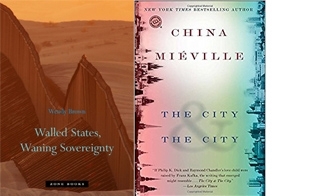Ann Lui and Mimi Zeiger - Approaching Citizenship
Hello World?
Co-curators of the U.S. Pavilion at the 2018 Venice Architecture Biennale, Ann Lui and Mimi Zeiger, will give insight into the curatorial practices and research leading into Dimensions of Citizenship. Interrogating the spatial conditions of design and citizenship, their exhibition will present works by architects, designers, artists, and thinkers who are responding to today’s shifting modes of citizenship, and putting forth visions of future ways of belonging.
The talk is a part of “The Swamp Pavilion” - Lithuanian representation in 16th International Architecture Exhibition - La Biennale di Venezia.
The talk will take take place on January 5th in the National Gallery of Art, Konstitucijos ave. 22, Vilnius.
The talk will start at 20:00 and will be in English. Event is free.

Ann Lui and Mimi Zeiger are co-curators of US Pavilion at 2018 Venice Biennale.
Mimi Zeiger is a Los Angeles-based critic, editor, and curator. Her work is situated at the intersection architecture and media cultures. She has covered art, architecture, urbanism, and design for a number of publications including The New York Times, Domus, Architectural Review, and Architect, where she is a contributing editor. She is a regular opinion columnist for Dezeen and former West Coast Editor of The Architects Newspaper. Zeiger is the 2015 recipient of the Bradford Williams Medal for excellence in writing about landscape architecture.
Ann Lui is currently an assistant professor at the School of the Art Institute in Chicago. Also a founding partner of Future Firm, a Chicago-based architecture office, her work focuses on the role of architecture as an infrastructure for discourse. She holds a B.Arch from Cornell University and a SMArchS from MIT’s History, Theory and Criticism program, where her research focused on corporate architecture in the postwar period. Previously, Ann practiced at offices including SOM, Bureau Spectacular, and Morphosis Architects. She was Assistant Editor of OfficeUS Atlas (Lars Muller, 2015), co-edited MIT’s journal Thresholds (MIT SA+P, 2015), and is editing a forthcoming volume with Gediminas Urbonas on the role of architects and artists in the civic realm, titled Public Space? Lost and Found.

One is political science, the other is a novel, but read in tandem Walled States, Waning Sovereignty and The City and the City unpack the paradoxes and impossibilities of hardened borders. Both books suggest complex territories of statehood and belonging. Brown’s concrete border walls are increasingly fortified even as global phenomena elude efforts to divide. In Mieville’s novel, fictional twin city states occupy the same geographic space. Citizens of each live separately, in fear of the “Breach” between peoples. Ingrained cultural norms produce a divide between self and other—a black mirror for contemporary conditions of citizenship.
